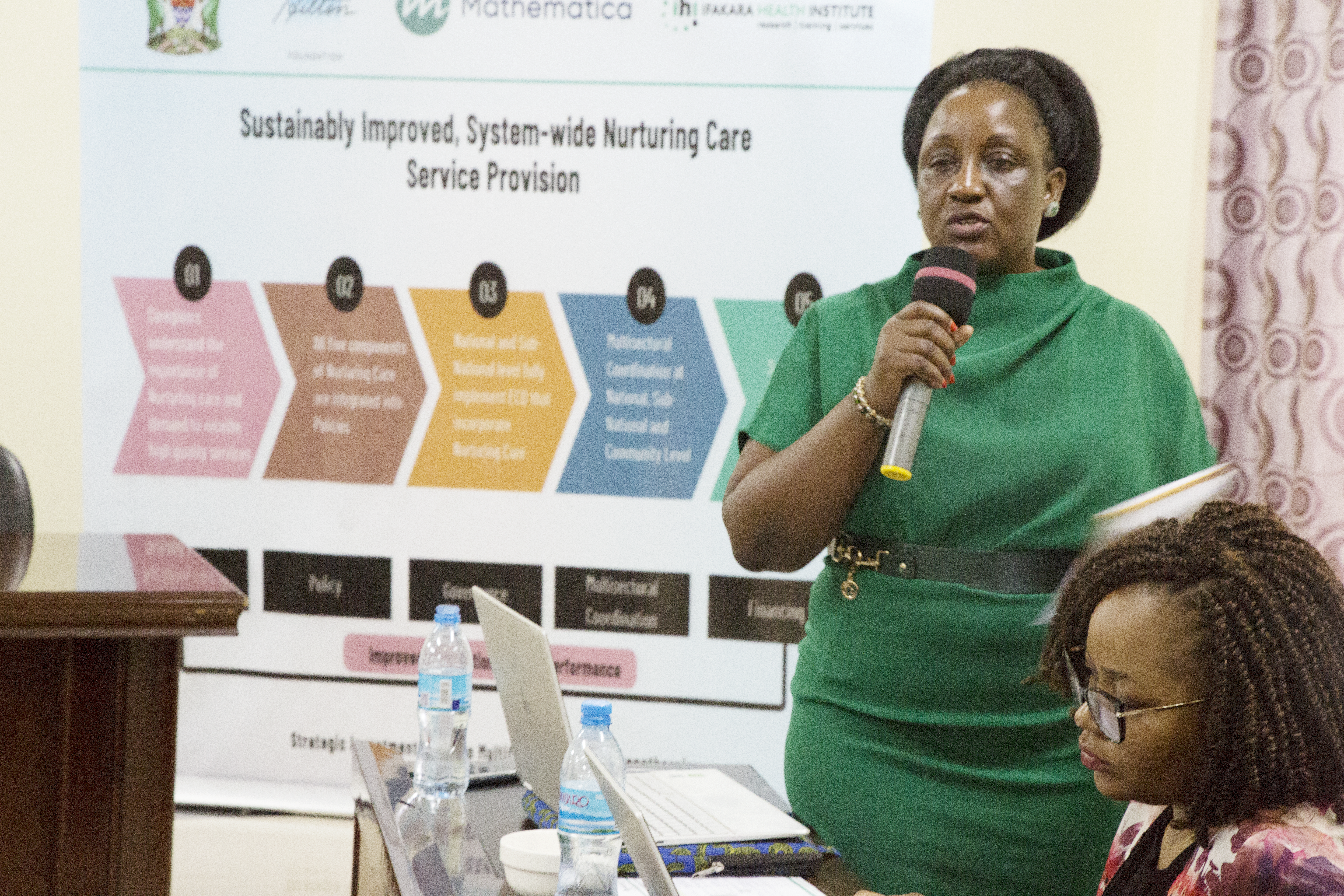
UNVEILED: New phase of Tanzania’s early childhood development project

On July 11 2024, the Early Childhood Development (ECD) research group at the Ifakara Health Institute announced the project’s second phase, which will build on the results of the first phase and stakeholders’ feedback obtained from a dissemination workshop the project hosted in Morogoro for three days – from July 10 to 12, 2024.
“This phase will focus on co-creating solutions with stakeholders, ensuring actions are informed by the voices and needs of those on the ground,” explained the project’s Principal Investigator Dr. Ester Elisaria when unveiling phase two of the project on the second day of the dissemination workshop.
Dr. Elisaria said the launched phase would research to strengthen ECD in Tanzania through data-driven strategies and capacity building. “Tanzania is currently focusing on developing the ECD Dashboard and scorecard. There are data quality issues within these systems; and there are inaccuracies, inconsistencies, and potential errors raising questions on the reliability of the data used to make decisions.
Specifically, phase two of the study aims to identify the determinants that influence children’s development outcomes; explore beyond quantitative determinants identified to influence child development outcomes by collecting qualitative data in the regions Rukwa, Lindi, Arusha, and Shinyanga; and assess the utilization of the 2022 TDHS-MIS by sub-national government actors (district and community level) to make informed decisions pertaining to various aspects of ECD/Nurturing care within the regions of Rukwa, Lindi, Arusha, and Shinyanga.
Also, phase two sought to identify existing issues such as reliability, accuracy, and consistency of the collected data in the ECD-related information systems; and draw recommendations to improve issues such as reliability, accuracy, and consistency of the collected data identified in ECD-related information systems.
The ECD phase one study, whose results were disseminated on the first day of the workshop, was a collaborative effort between Ifakara and Mathematica INC, generously supported by the Conrad N. Hilton Foundation, focused on evaluating and improving finance, governance, collaboration, and policy environments within Tanzania’s ECD framework.
Morogoro dissemination workshop
"This workshop is the culmination of extensive research and collaboration," Dr. Elisaria emphasized in her presentation. "Over the past months, we have engaged stakeholders from Monduli, Dodoma, Nachingwea, and Ilala to gain insights crucial for shaping the future of early childhood development in Tanzania."
The proceedings commenced with a comprehensive presentation on the ECD landscape in Tanzania, followed by study findings highlighting both challenges and opportunities identified during consultations with government officials, private institutions, NGOs, and community leaders across the targeted regions. The research underscored systemic barriers such as inadequate funding, fragmented governance structures, and the need for enhanced policy coherence.
Joining Dr. Elisaria in a key presentation was her colleague, Farida Katunzi, a co-Principal Investigator. She described the measurement framework, methods, and results.
Lively discussions, breakout sessions
Attendees engaged in lively discussions and breakout sessions to delve deeper into the study’s implications. Participants exchanged perspectives on potential interventions and strategies to address identified gaps in policy formulation, governance effectiveness, and financial sustainability within Tanzania's ECD space.
"The findings presented today provide a roadmap for meaningful change," remarked a representative from the Ministry of Community Development. "It's imperative that we leverage these insights to drive policy reforms and foster stronger partnerships across sectors."
